Dog Breed
Basset Hound
Friendliness
Exercise Needs
Health Issues
Barking Tendencies
Grooming Needs
Shedding Level
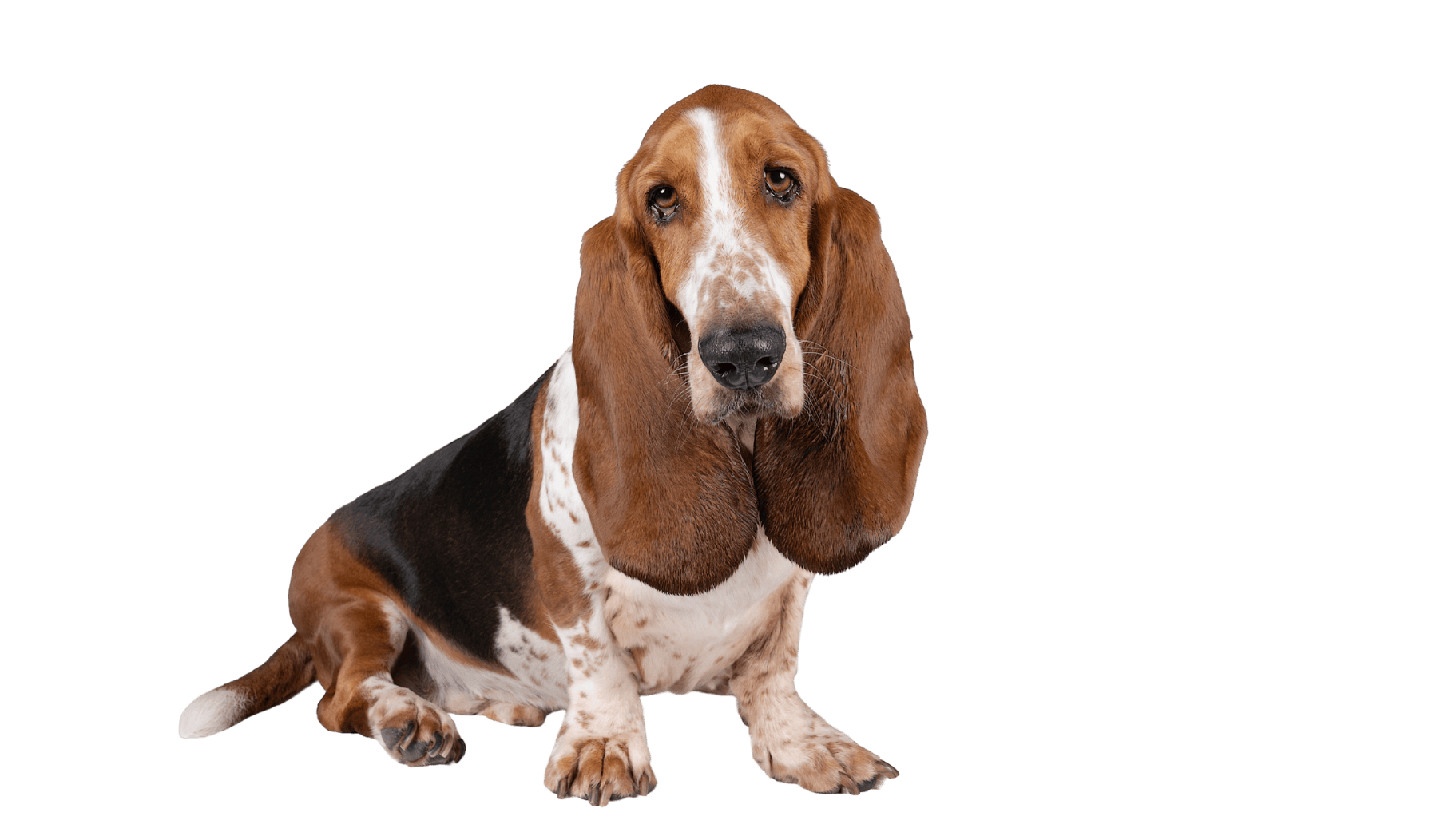

Laid-back legend
With their long ears, soulful eyes, and unmistakable waddle, Basset Hounds are charming, easygoing dogs that love being part of the family. Calm and affectionate by nature, they’re known for getting along well with children and other pets.
While they’re not overly energetic, Bassets are curious scent hounds at heart. Once an interesting smell grabs their attention, their famously stubborn streak can kick in, often followed by their deep, unmistakable bay.
Caring for your Basset Hound
Nutrition
Choosing the right food
Every dog is unique. From small companions to large, active breeds with different nutritional needs. ROYAL CANIN® Size Health Nutrition is designed to support dogs based on their size and life stage, helping maintain overall health, vitality and wellbeing. These formulas use carefully selected protein sources, targeted nutrients and tailored kibble to support digestion, energy levels, and bone and joint health across small, medium and large dogs.
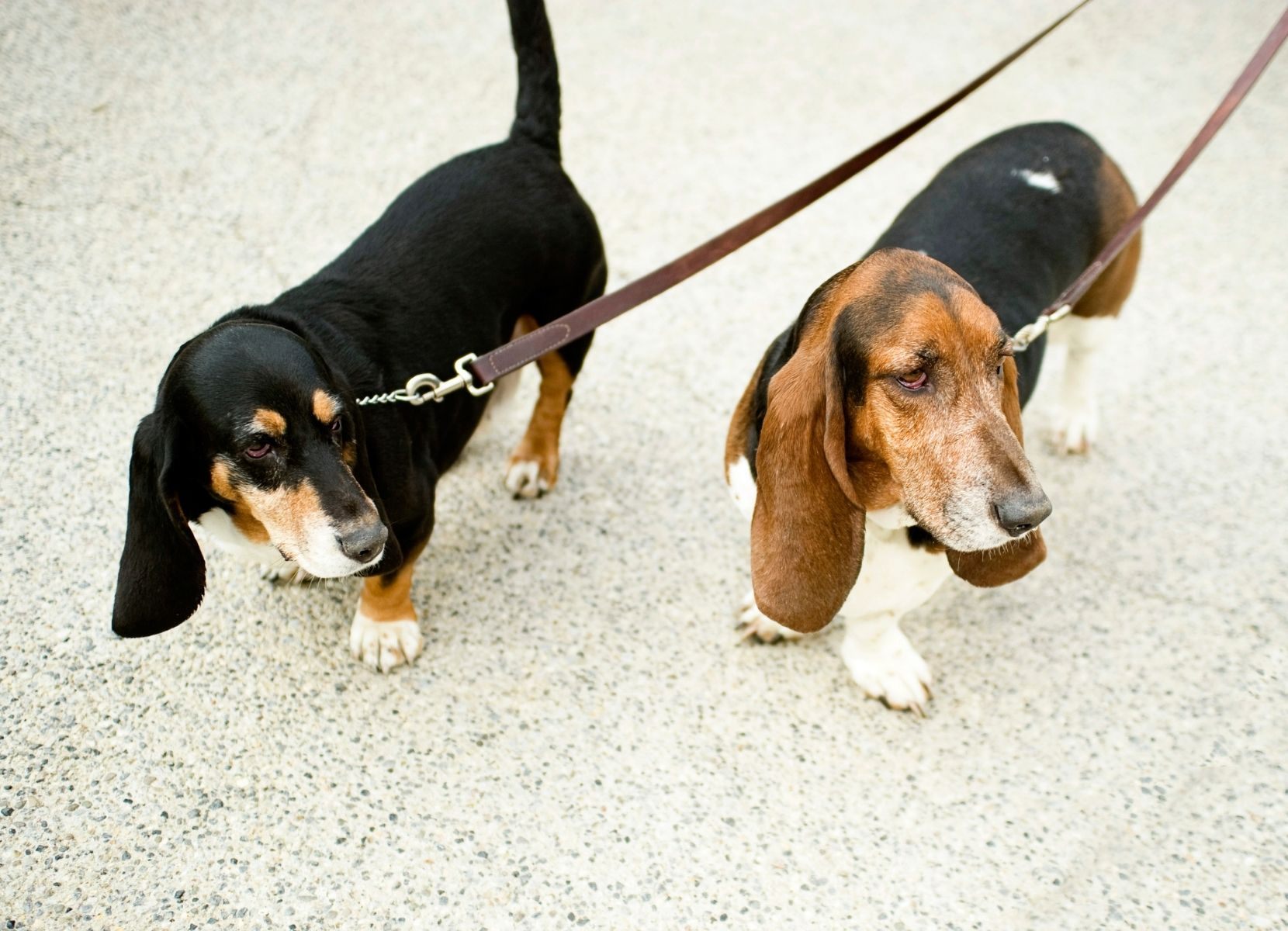
Exercising your dog
Basset Hounds don’t need intense exercise, but they do benefit from daily movement to stay healthy and avoid weight gain. A steady 20–30 minute walk each day is usually enough to meet their needs.
As scent hounds, Bassets love taking their time to sniff, explore, and follow interesting smells. Walks are more enjoyable for them when they can move at their own pace.
They should always be walked on a lead, as once they catch a scent, they’re likely to wander off without hesitation.
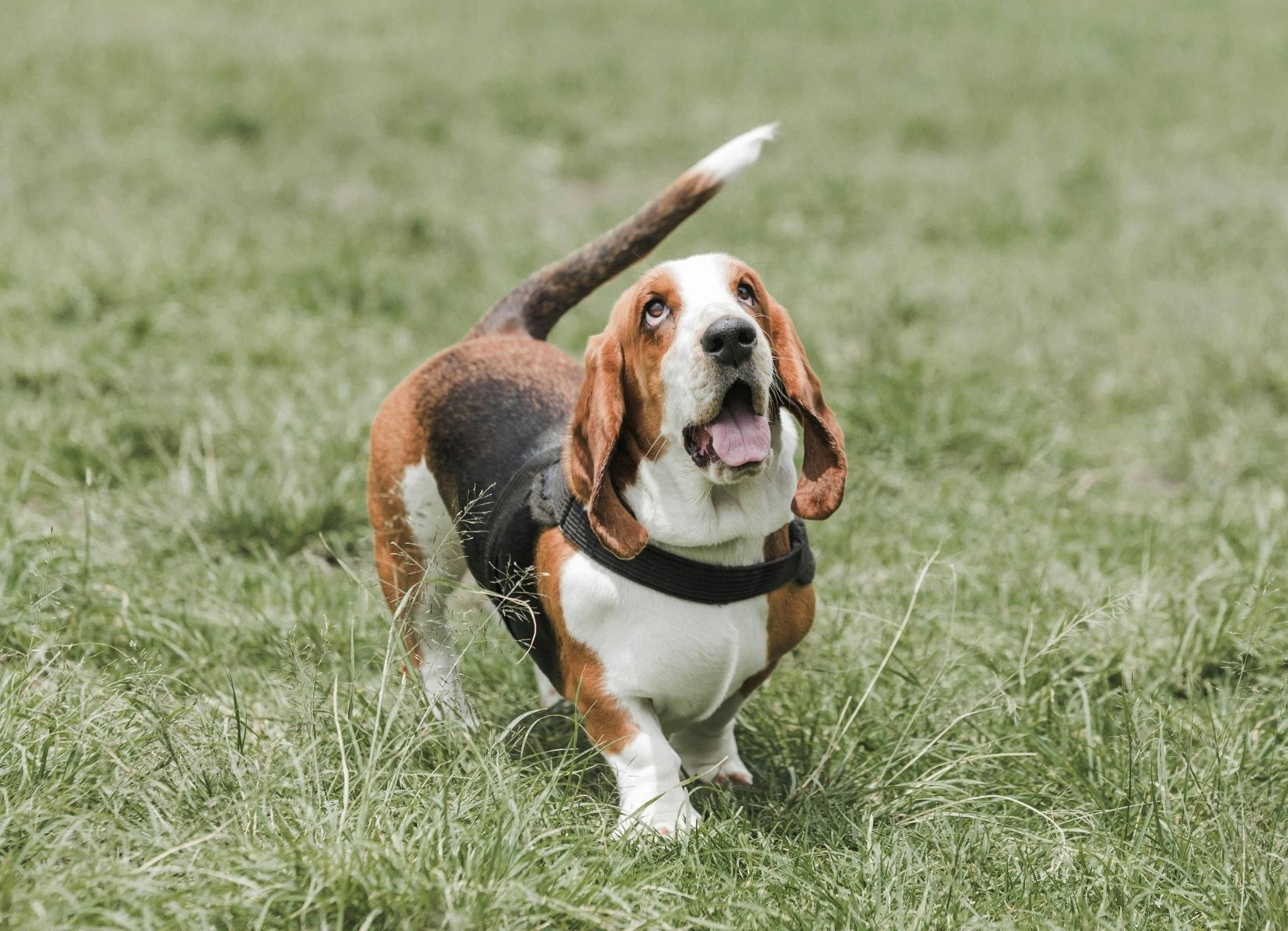
Training your Basset Hound
Training a Basset Hound can be a test of patience. They’re intelligent dogs, but their independent nature means they don’t always feel the need to please.
Positive reinforcement works best, using treats, praise, and consistency. Harsh training methods tend to be ignored entirely.
Starting training early helps build good habits, especially around recall and lead walking. Keeping sessions short and engaging makes training more successful.
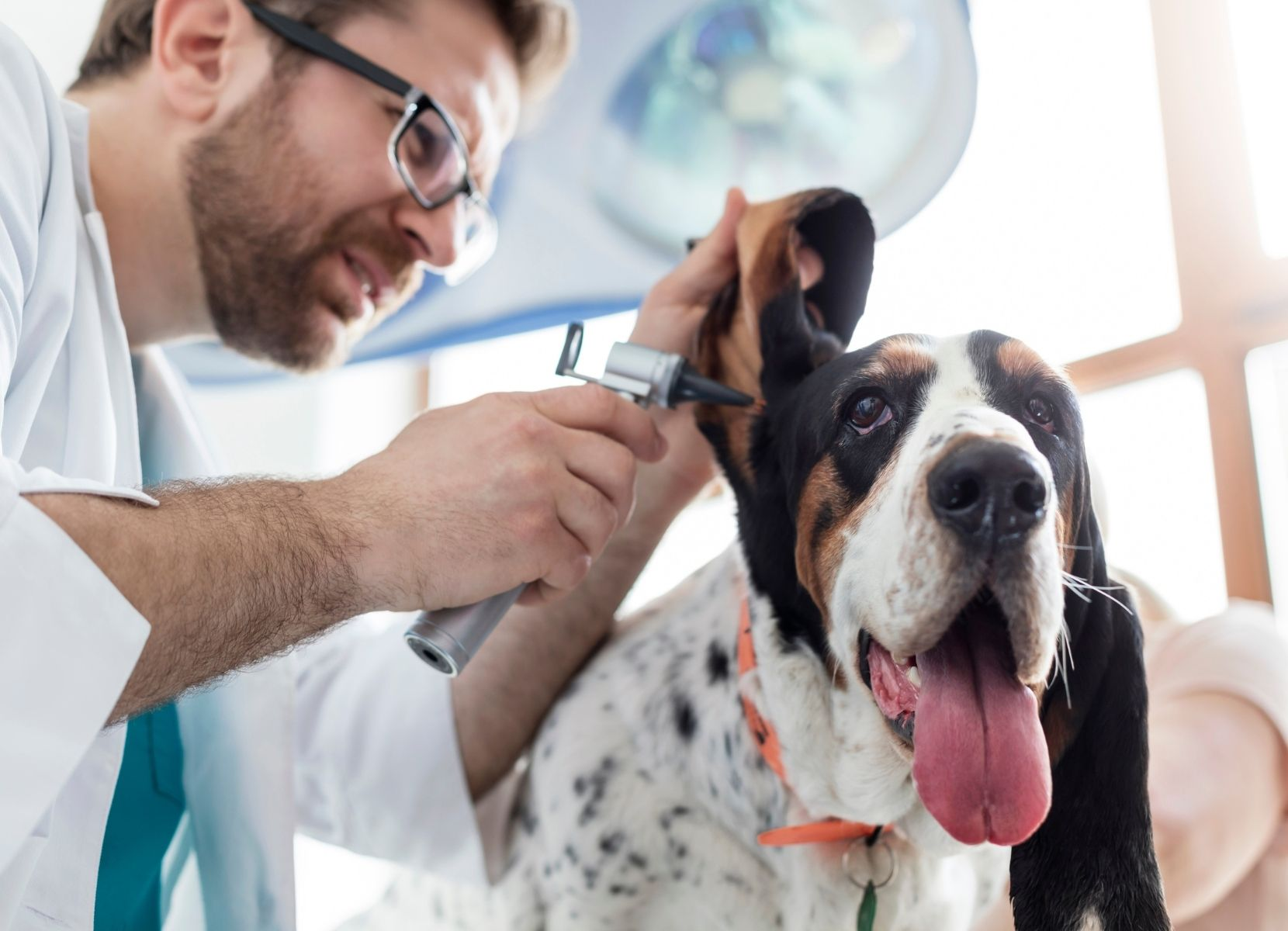
Your dog's health
By recognising health problems in Basset Hounds early you can seek advice and treatment from a veterinarian.
Reduce the risk of health problems by purchasing a puppy from a responsible breeder. Always inspect breeding facilities and breeding dogs, and never buy from a distant online seller.
Health Issues to watch out for:
Ear Infections
Eye Issues
Back Problems
Joint Problems
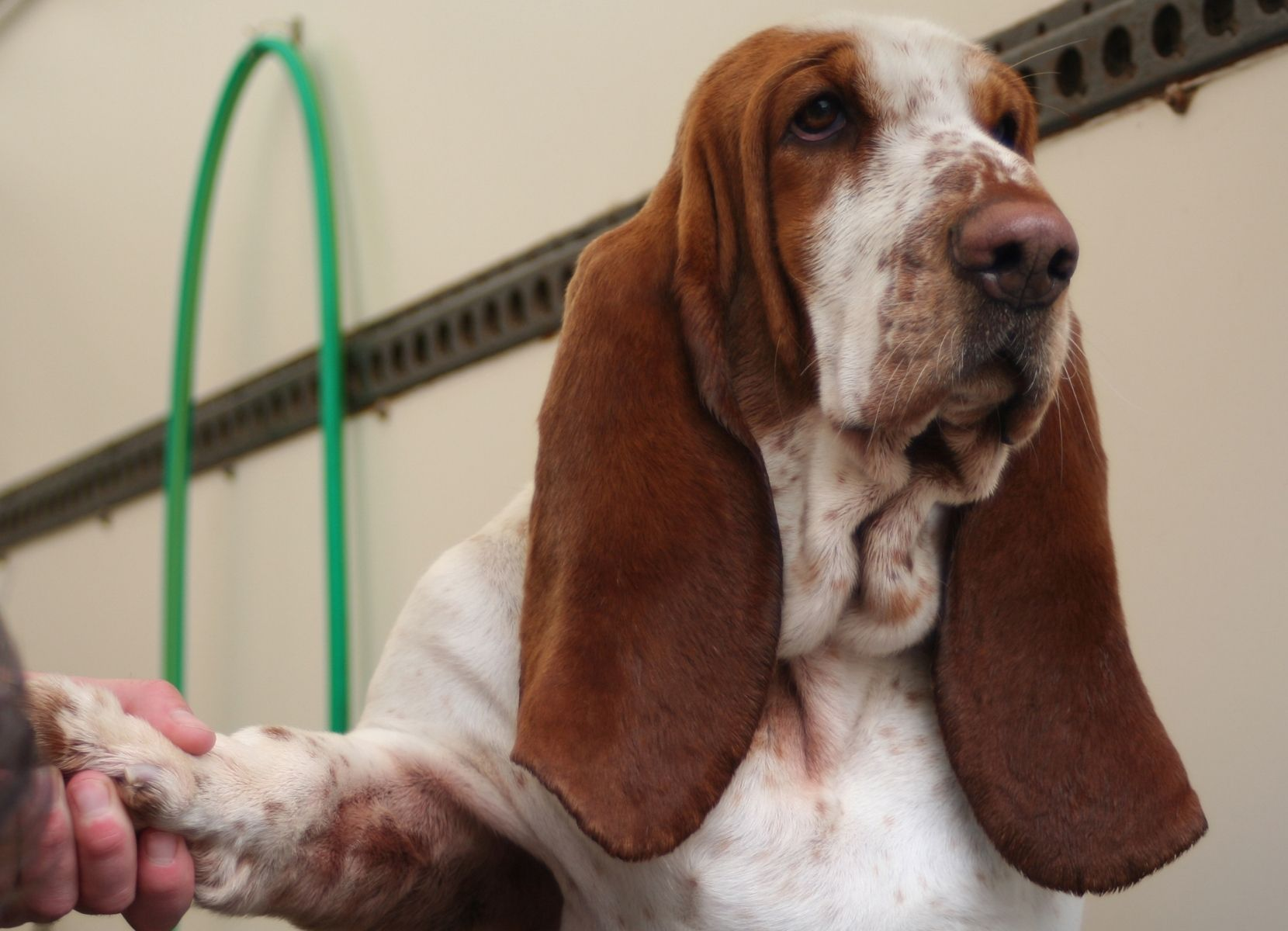
Grooming your dog
Basset Hounds have short, smooth coats that are easy to maintain. Weekly brushing helps remove loose hair and keeps their coat in good condition.
Their long ears and skin folds need regular attention, as they’re prone to trapping moisture and dirt. Cleaning ears weekly and gently drying skin folds helps prevent infections.
Occasional baths, regular nail trims, and daily teeth brushing all contribute to keeping your Basset comfortable and healthy.
Key characteristics of Basset Hounds
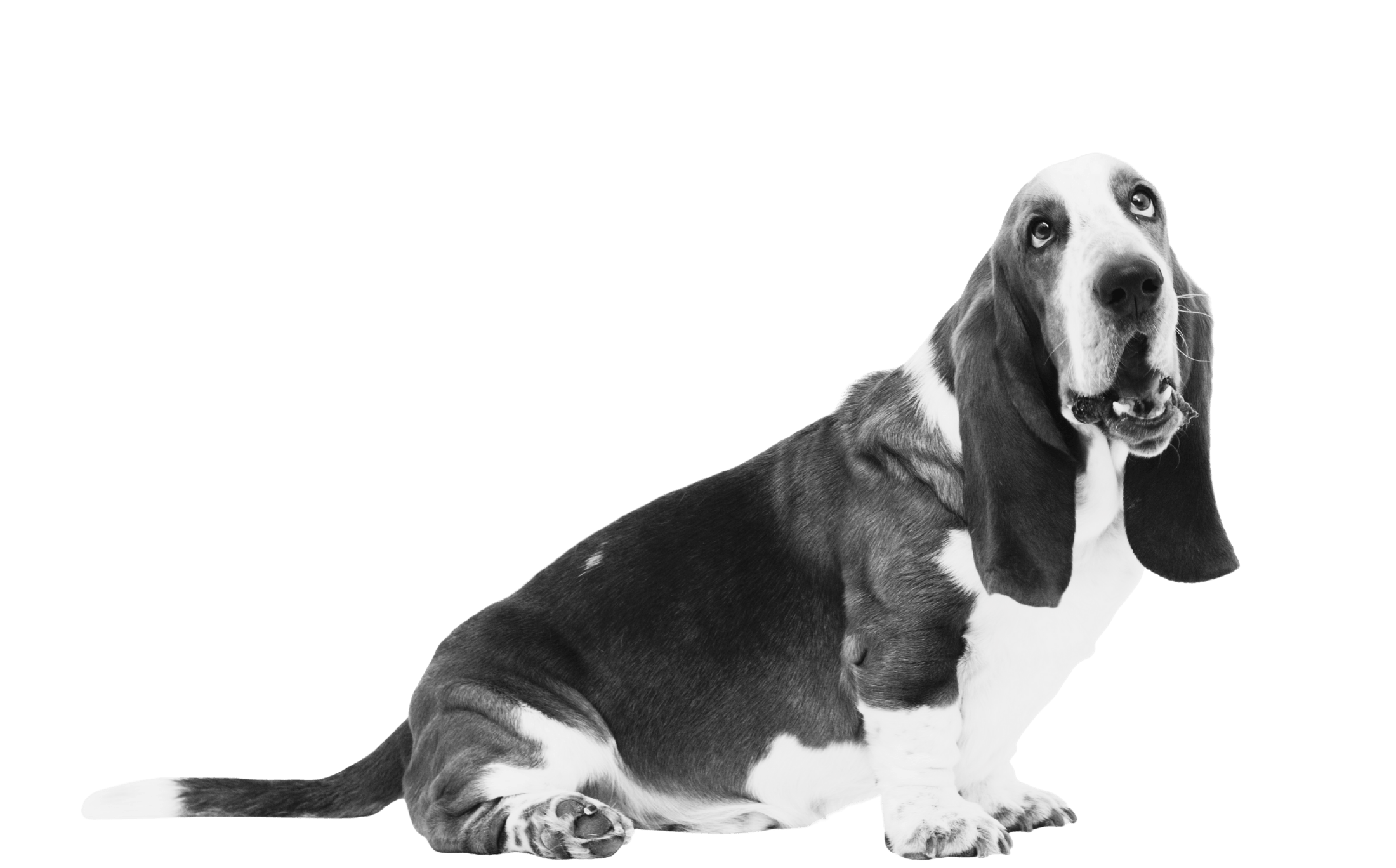
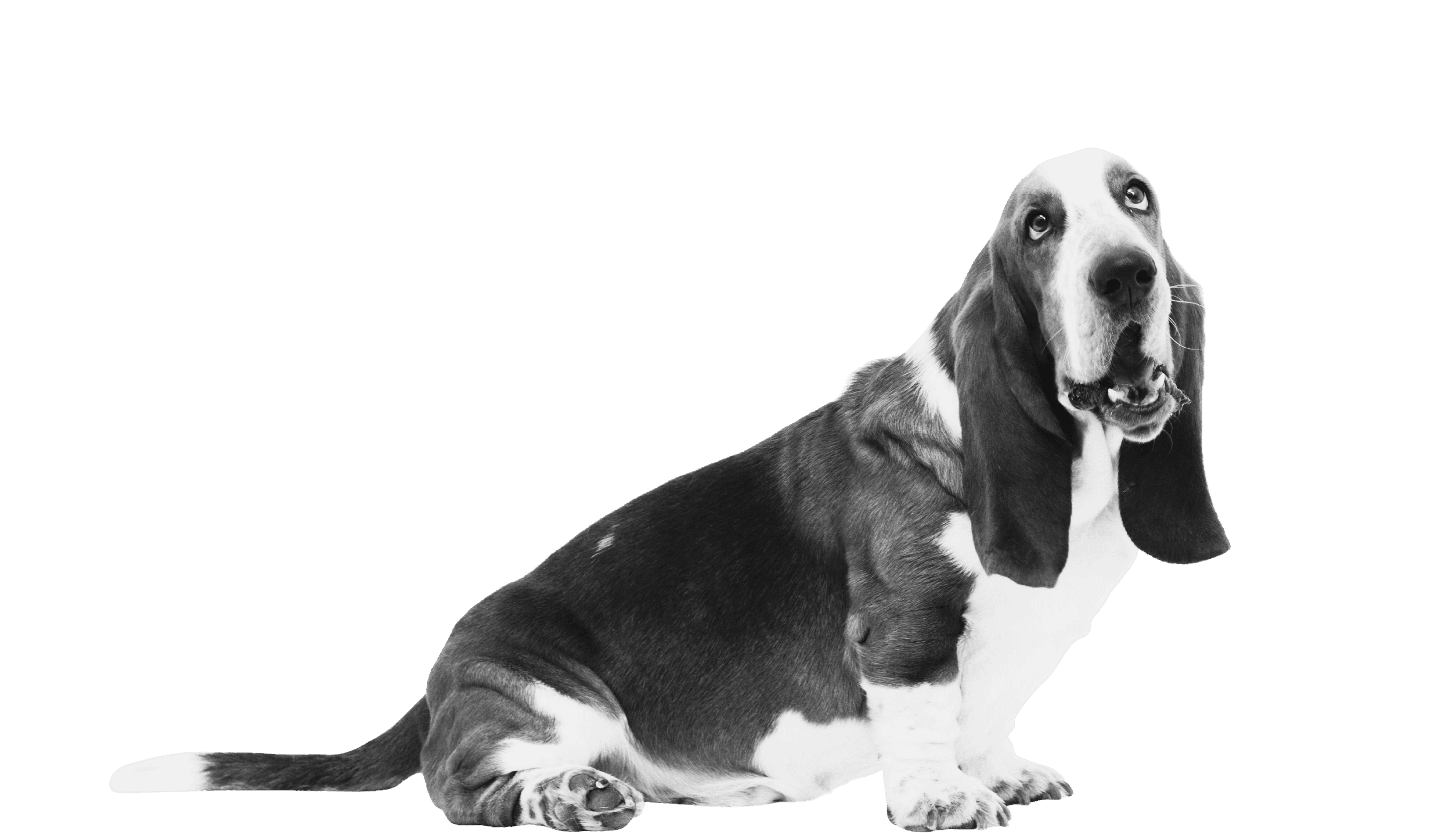
Basset Hound FAQs
Basset Hounds are known for their relaxed nature, strong sense of smell, and unmistakable personality. These FAQs cover common questions about living with a Basset Hound, from daily care to household compatibility.
Are Basset Hounds good family dogs?
Yes. Basset Hounds are gentle, patient, and typically great with children and other pets.
Do Basset Hounds need a lot of exercise?
No. They have moderate exercise needs and are usually happy with daily walks and gentle play.
Are Basset Hounds easy to train?
They can be challenging due to their stubborn streak, but consistent, positive training works best.
Do Basset Hounds bark a lot?
They’re known for their loud, distinctive bay, especially when following a scent or feeling bored.
Are Basset Hounds prone to health problems?
Their long backs, joints, ears, and eyes can be prone to issues, so regular care and vet check-ups are important.
This FAQ section highlights everything you need to know about living with a Basset Hound. With the right routine, patience, and care, Basset Hounds make loving, low-key companions well suited to relaxed households.

